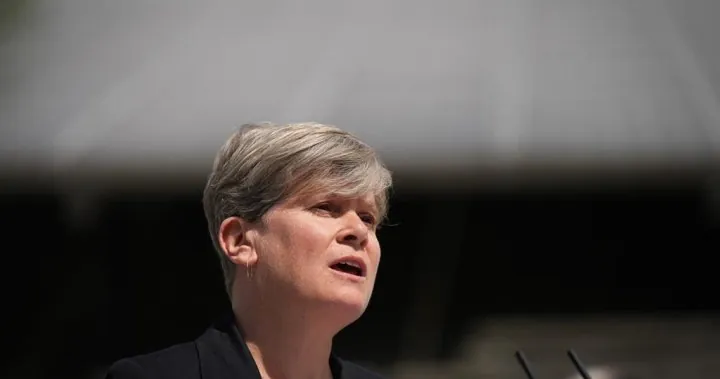
British Columbia Takes Bold Steps to Combat Overdose Crisis Following Ministry Restructuring
2024-11-25
Author: Liam
Introduction
In a decisive move to tackle the ongoing drug overdose crisis, British Columbia's new Health Minister Josie Osborne has announced plans to increase treatment beds and significantly reduce overdose deaths. This initiative follows the controversial dismantling of the stand-alone Ministry of Mental Health and Addictions by Premier David Eby’s government, which critics had labeled as ineffective and lacking authority.
Background of the Ministry
Originally established in 2017 to coordinate responses to the toxic drug crisis that has claimed over 15,000 lives in the past eight years, the ministry has now been integrated into the Health Ministry. "The time has come to fold the ministry back into the Ministry of Health," Osborne remarked, expressing optimism that this consolidation would facilitate quicker decision-making and a more focused response.
Current Statistics
The statistics are alarming: the B.C. Coroners Service reported that 1,749 individuals have died from toxic drug overdoses in just this year alone, with last year seeing the highest recorded overdose deaths at 2,551. Osborne emphasized, "We are going to do everything possible to reduce the number of deaths and the impacts on people and families. This is a top priority for our government."
Advocates' Reactions
Drug policy advocates have expressed cautious optimism about these changes. DJ Larkin, of the Canadian Drug Policy Coalition, pointed out the flaws of the former ministry, stating it lacked both the budget and the authority to implement necessary reforms. "It set expectations that it couldn't meet. It simply didn't have the teeth," she stated, indicating that the merger could provide the needed resources and backing to create meaningful change.
Leslie McBain, co-founder of Moms Stop the Harm, echoed these sentiments, sharing her hope that with this restructuring, progress may finally be made. "For seven to eight years, we've seen little improvement. We need change," McBain said, emphasizing the urgency of the situation.
Calls for Policy Strengthening
However, both advocates are still calling on Osborne and the New Democratic Party government to strengthen their policies on drug decriminalization and support for safe supply initiatives. Earlier this year, Chief Coroner Lisa Lapointe had urged the government to allow non-prescription access to controlled substances, a suggestion that was dismissed amid public outcry regarding open drug use.
"Decriminalization has essentially been undermined by the current administration," McBain stated. "We must push for stronger policies that facilitate safe drug use." Larkin added that addressing the unregulated drug market is crucial for reducing harm and saving healthcare costs.
Osborne's Commitment
As Osborne takes on her new role, she acknowledges the complexities surrounding decriminalization and the need for safe drug supplies. "I aim to learn from and listen to communities and organizations to comprehend the ground realities of different approaches," she affirmed, signaling her commitment to a comprehensive understanding before enacting new policies.
Conclusion
With British Columbia facing one of its most pressing public health crises, citizens and advocates alike await further developments from the new health leadership, hoping for a transformative approach that prioritizes lives and fosters recovery in a province grappling with the shadows of addiction.









 Brasil (PT)
Brasil (PT)
 Canada (EN)
Canada (EN)
 Chile (ES)
Chile (ES)
 España (ES)
España (ES)
 France (FR)
France (FR)
 Hong Kong (EN)
Hong Kong (EN)
 Italia (IT)
Italia (IT)
 日本 (JA)
日本 (JA)
 Magyarország (HU)
Magyarország (HU)
 Norge (NO)
Norge (NO)
 Polska (PL)
Polska (PL)
 Schweiz (DE)
Schweiz (DE)
 Singapore (EN)
Singapore (EN)
 Sverige (SV)
Sverige (SV)
 Suomi (FI)
Suomi (FI)
 Türkiye (TR)
Türkiye (TR)